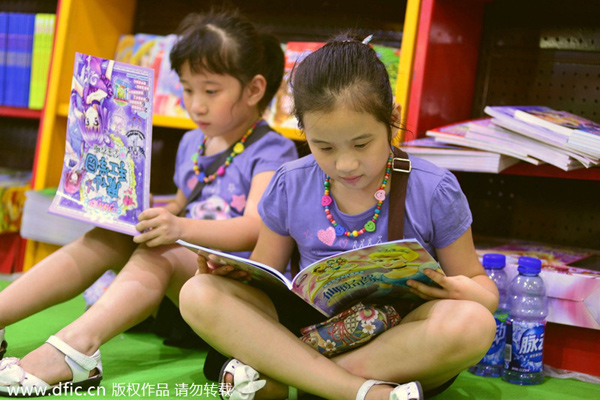 |
|
A pair of twin sisters read children's books in Shanghai on Aug 15, 2013. [Photo/IC] |
As the birth policy may continue to be eased, the baby boom may last for five to eight years, said Zhai, adding that more efforts will be made in the public service sector to meet the challenge.
China's family planning policy was first introduced in the late 1970s to rein in the surging population by limiting most urban couples to one child and most rural couples to two children, if the first child born was a girl.
The policy was later relaxed, with its current form stipulating that both parents must be only children if they are to have a second child.
However, a number of social problems have occurred due to the policy.
China's labor force, aged from 15 to 59, decreased by 3.45 million year on year in 2012, marking the first "absolute decrease" since China's reform and opening up in 1979.
As of 2013, the number of Chinese people aged 60 or above exceeded 202 million, 8.53 million more than in 2012 and accounting for 15 percent of the total population, up 0.6 percentage points.
Gender imbalance is another side effect of the one-child policy, as Chinese parents' preference for sons has led to abortions of female foetuses.
In the past 20 years, the sex ratio of newborns has remained above 115 to 100 (men to women). In 2014, the ratio dropped to 115.88 to 100 from 117.6 to 100 in 2013.
